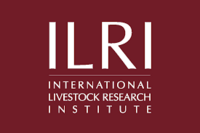- PiPoCooL /
- Links
Heat stress in pigs
Agriculture and food
https://www.agric.wa.gov.au/feeding-nutrition/heat-stress-pigs
Pigs are much more sensitive to heat than other animals so during periods of hot weather it is important to look at ways to reduce heat stress.
This page contains a warning from an American study and outlines what steps you can take to minimise heat stress in pigs
How yeast can help sows to deal with high temperatures
Pig Progress (6/2017)
Heat stress is not only a problem in tropical countries – also in moderate climates this can have an effect on productivity. Applying a yeast probiotic in diets has been shown, however, to be able to help sows with their digestion, even when temperatures rise.
Animal Cooling Basics for Livestock and Poultry
Video for the Animal Agriculture in a Changing Climate project describes the different methods for cooling livestock animals on the farm. Animal cooling is more important than ever as climate change in the American midwest results in more frequent heat waves and higher humidity levels. The video explains the importance of understanding the thermoneutral zones of different species, and the different ways that animals dissipate heat from their bodies. The cooling methods include the most common and cost-effective methods such as shade, ventilation, air velocity, and direct sprinkling, as well as some alternative and experimental methods such as geothermal cooling systems and air conditioning Farmers of the future will need to invest in cooling strategies that provide enough benefits to justify the costs to the operation.
Source: Livestock & Poultry Environmental Learning Center (https://www.youtube.com/user/lpelc)
Climate Change Impacts on Animal Agriculture
This course lesson by the Animal Agriculture in a Changing Climate Project describes the impacts of climate change on animal agriculture. Farmers and animal health experts discuss how animal production is affected by climate events such as excessive heat or cold, drought, flooding or other weather events. The lesson teaches a systematic approach to evaluating a farm operation's vulnerability to climate changes - a farm climate impacts audit.
Climate Change Adaptation for Animal Agriculture
This course lesson by the Animal Agriculture in a Changing Climate Project describes the different ways that animal producers are adapting to the impacts of climate change. The adaptations include both short-term and long-term strategies, and they can be applied to all areas of farm operation, including farm inputs, animal production, logistics and farm exports.
Climate Change’s Forgotten Sector
Agriculture, and livestock in particular, is a major contributor to climate change. Emissions from the livestock sector are estimated to account for 14.5 per cent of the global total, more than direct emissions from the transport sector. Rob Bailey will present research on consumer perceptions undertaken by Chatham House which suggests that, despite its importance, there is a significant lack of public awareness of the link between certain agricultural activities and climate change. He will argue that while much is being done in other sectors, government and civil society have so far been reluctant to address the contribution of agriculture to climate change. He will present options and approaches for the global agriculture sector to reduce its environmental footprint.
Climate Change Adaptation Measures in Livestock
Climate change has a negative impact to livestock production. Cattle endure heat stress due to summer heat and by trying to adapt they eat less, resulting in reduced production results compared to the desired.
Taking into account the fact that livestock production is a type of production that contributes to end products such as milk, meat or eggs to bring profit, out of the food produced in the fields, the need is obvious for application of adaptation measures during summer heat when temperatures in farms are well above temperatures considered optimal for the livestock.
The Rural Development Network of the Republic of Macedonia implementing the USAID Adaptation to Climate Change in Agriculture Project in cooperation with professors from the Faculty of Agricultural Sciences and Food applied adaptive measures, which are cheap but efficient in mitigating negative impact climate change has in livestock production.



